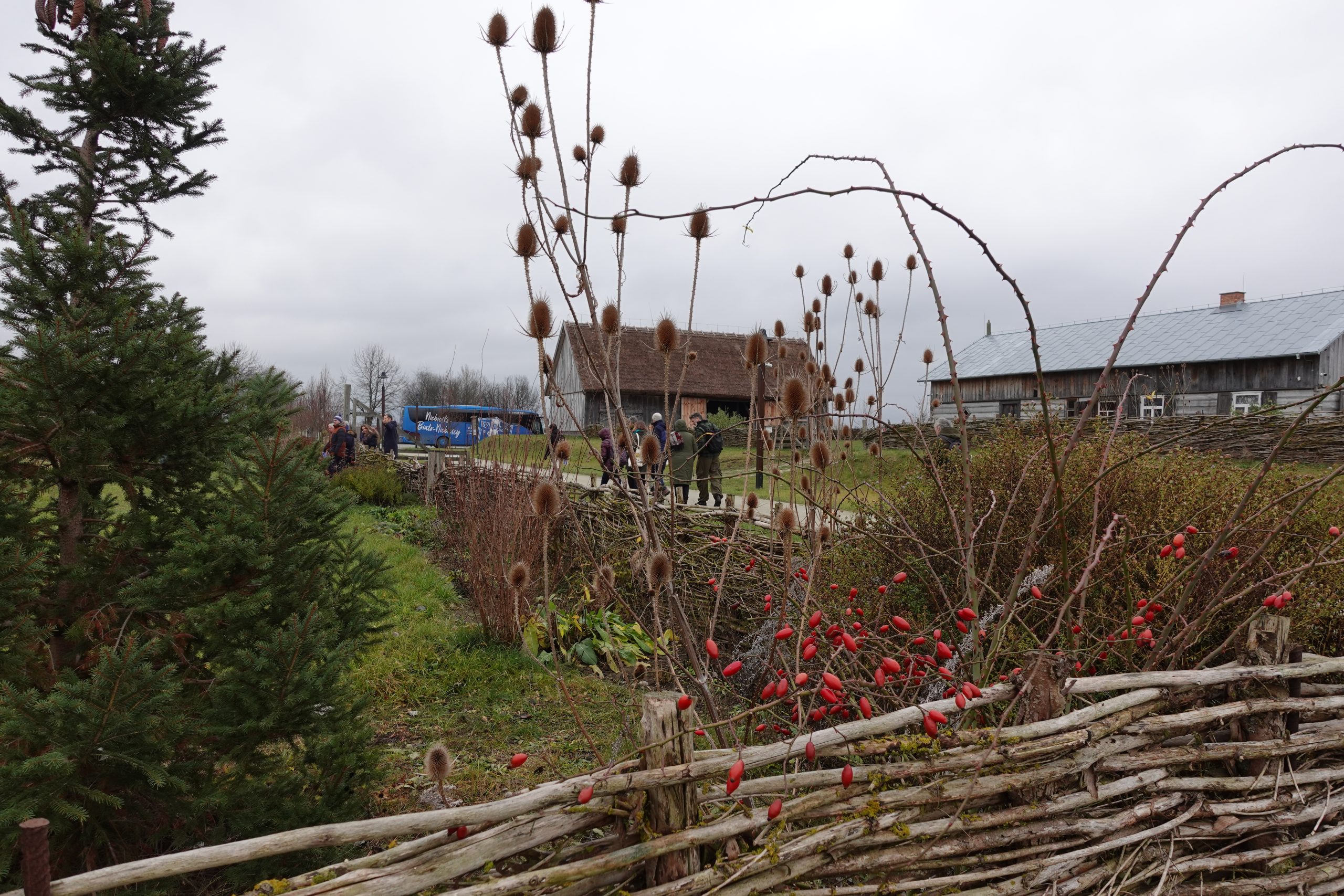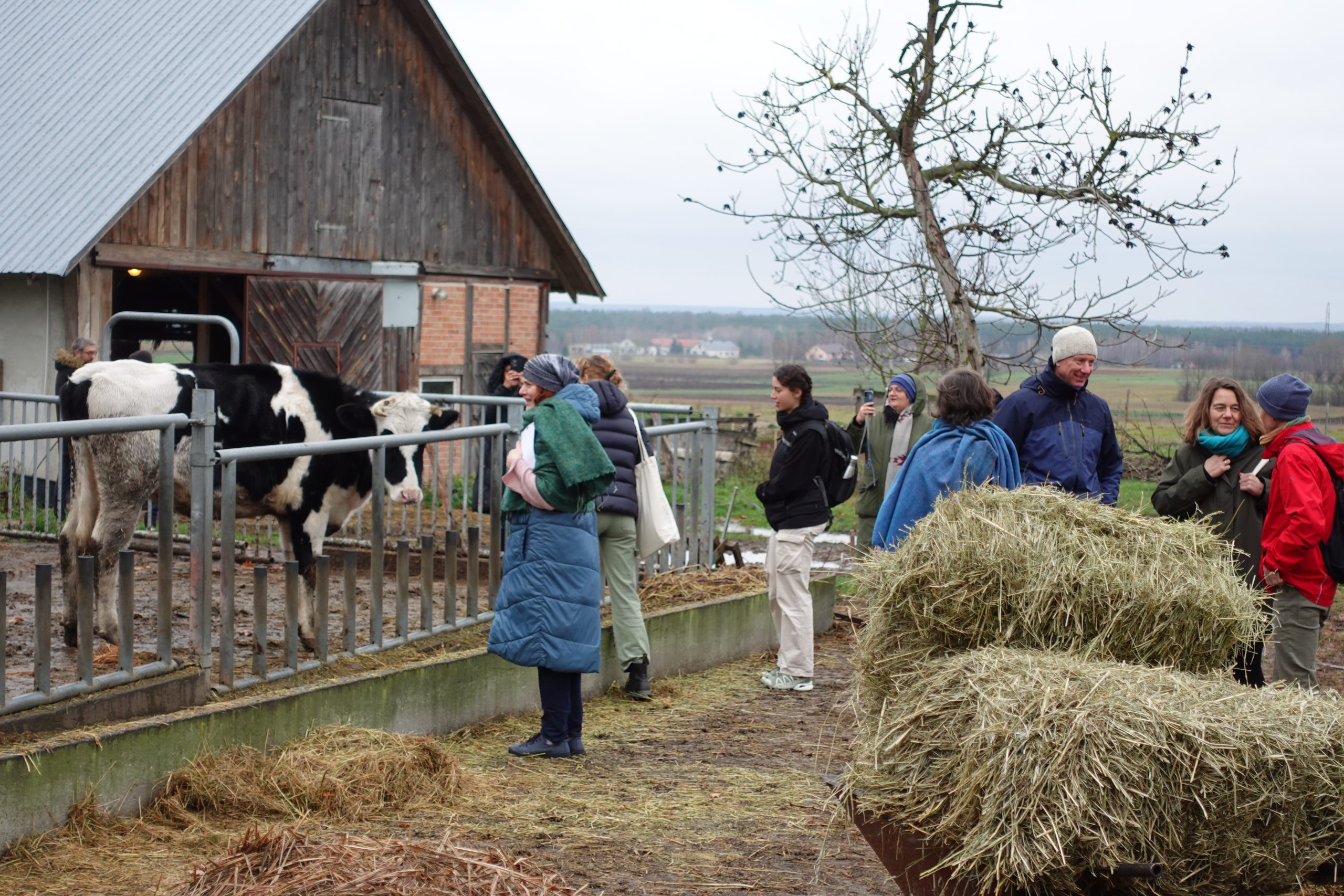From rural resilience to democratic revival, ARC2025 charts a transformative path for Europe. At first glance it may sound just like a wishful dream. But in fact it is an invitation to take action. Europe will be challenged this year by those who do not want to see it united and strong. But old nationalism and new geopolitical confrontations from East and West will also stimulate our civic courage. We see so many pioneering local initiatives leading the way across Europe setting up new farming and food systems: Farmers, local businesses and leaders of change, including researchers and forward-thinking politicians.
Have a dream! It helps against sleepwalking into a nightmare. Taking action with others will make the dream, however big, a reality!
Editorial by ARC2020 president Hannes Lorenzen.
Welcome to the New Year!
Best wishes for our readers and friends!
We have a dream: 2025 can – and will – be a good year, against all odds. A renaissance of democratic movements in Europe and the onset of a new counter culture against fake news and hate; new alliances for civil liberties and human rights, and for better climate, biodiversity, food and farming policies, providing real answers to our sadly all-too-real challenges.
We dare to dream that 2025 will be remembered as the year of waning populism, when awakened democratic majorities took on autocrats, billionaires and oligarchs, East and West, elected or not.
This year will see more Europeans proud of Europe again – still one of the best places in the world to live – and ready to make their continent resilient to the coming shocks. A Europe ready to welcome those in need of freedom, and who want to become part of our urban and rural communities.
Europe will be challenged by those who do not want to see it united and strong. But old nationalism and new geopolitical confrontations from East and West will also stimulate our civic courage against fear and depression.
Peeking over the start line of 2025, this path seems hard to see. But this is not just a pipe dream.
We see so many pioneering local initiatives leading the way across Europe setting up new farming and food systems: farmers, gardeners, conscious eaters, local businesses and leaders of change, including researchers and forward-thinking politicians.
The foundations are there. But for this to happen, we all need to open our minds and hearts to this reality.
Having a dream helps against sleepwalking into a nightmare. Taking action makes the dream, however big, a reality.

2025 will see an reawakening our the bonds between rural and urban peoples. © Ann-Marie Weber
A new Common Farming and Food policy
It is from this local and regional level that we can find fertile ground for a new Common Farming and Food policy to sprout. All the right ingredients for the recipe of success are there. What remains is for them to connect and realise the critical mass and the power they already have.
The EU’s old, industrial, export-oriented Common Agricultural Policy, the latest iteration of the policy which is about to be once again redesigned, will not survive; neither will the new post-WTO trade deals forfeiting farming and food as collateral damage of industrial, geopolitical and commodity interests.
2025 will be the year for a pragmatic new Common Farming and Food Policy, reorienting former hectare-based subsidies for armchair landowners towards integrated programmes saving millions of smaller farms. This new policy will instead preserve and create new rural jobs and livelihoods, support the power and independence of regions, the creativity of local communities, farmers and rural enterprises, and enhance local food sovereignty. It will strengthen climate-adaptation and biodiversity in resilient, circular economies and ecosystems.
This new European Common farming and Food policy will become common ground upon which agro-ecologists and good conservative patriots can meet again and cooperate.
This is more than just a dream. In some places it is already a reality.
The municipality of Plessé in France has shown how that works on a communal level. Their example has stimulated other municipalities to do the same and to spread the good news further on. More municipalities, towns and cities have already followed the example. We stand ready to support this promising civic process.
From Competition to Cooperation
Competitiveness may be the new mantra of this Commission, but there is still time for European Commission President Ursula von der Leyen to finally embrace reason, rejecting the recommendations of Mario Draghi, former President of the European Central Bank, for unqualified growth and global competitiveness.
This would mean abandoning plans to dissolve specific programme based budgets for agriculture, rural and cohesion policies to create a centralised fund for EU competitiveness, which could prove disastrous for rural and agricultural communities.
As we enter a new era of trade wars, this would also see farming and food production excluded from unfair, destructive trade to valorise nature conservation, healthy food and public health.
Instead, the concept of ‘buen vivir’ can form the basis for renegotiating the Mercosur trade agreement with the aim of establishing respect for local rural livelihoods and global ecological imperatives. In this way, a new, post-colonial basis for trust and fair-trade can be created.

Participants visiting the farm at the Ecological Folk highschool in Grzybów Poland. © Ann-Marie Weber
Investing in the Here and Now
Europe is very rich, but its wealth is badly distributed. This year, the winners of the wealth game – the so-called ‘baby boomer’ generation, inheriting wealth built off of exploitation of both human and natural resources – will choose to put people and money where both are most needed: where they live.
This means investing into newly created local and regional funds to support their neighbors and local economies. Such action offers much needed support to foundations, local communities and regions to invest in critical infrastructure needed for good farming and good food, on regional, local and European level.
This spirit of common action will move people and money to where it makes sense. ARC will be part of these moves.
And if you’re still not convinced this dream can become reality, ARC’s ‘unwritten EU regulation for an integrated European Rural, Agricultural and Food Policy’ – written by ARC, but as yet still unwritten by the European Commission – can offer food for thought on what the policy behind a future like this could look like.
So what lies in store for ARC2025?
New (Digital) Pastures
The first change of the year is that ARC has left X from January 2025. We are not the first, and will certainly not be the last, to support human, reasonable and empathic conversation in search of democratic common sense.
In doing so, we join the thousands of other like minded civil society organisations who have taken a stance against fake news, hate speech and manipulation of democratic discourse and free elections in Europe and the world.
It gives hope that 2025 can sow the seeds of European and global resistance to antidemocratic and greedy billionaires and their ‘brave new world’.
You can of course continue to follow our work on LinkedIn, Instagram , and, our newest venture, Bluesky. You can also sign up to our newsletter to stay up to speed.
Deeper roots
But some things won’t change in 2025 – ARC will continue to provide firsthand, reliable policy analysis and news, explaining the must-know movements in EU policy. While other media houses hide behind paywalls, ARC will remain an open access agri-food news provider on Brussels based news and policy analysis.
To build on the work already done, we will nurture a new local and regional journalism working in the field of farming, food and rural policies and, together with other professionals, to investigate and hold the European Institutions to account in a constructively critical manner.
Letters from the farm: We shall continue to platform farmers’ voices, visiting their farms and bringing you their stories in our letters from the farm series. We can share problems and difficulties, but more importantly the beauty and satisfaction of farmers’ lives, their empathy for animals and the living world. In 2025, we also plan to develop a new branch of this – letters from a future farmer, looking ahead to those that will feed us in the years to come.
We will continue and deepen efforts to build bridges across these lines of confrontation and polarisation between farmers, rural people and ‘the rest of society’ on the foundational stepping stones of respect, trust and empathy.
Rural resilience: Back at the end of 2024, ARC completed the third prong of its curious rural caravan. But work is far from over – it’s only just beginning. The gathering in Poland sowed the seeds of action in rural partners across the EU, and in 2025 we will continue nurturing our rural resilience caravan and the network of activists which has joined the adventure over years.
Seeds: We shall continue sharing news on seeds, as well as sowing seeds for thought with our project, Seeds4All, to spotlight agro ecological initiatives that contribute to the transition of agri-food systems from a seed perspective and amplify voices from the field within political institutions at EU, national and local levels.
In a nutshell: Below, you can find a snapshot of ARC’s past, present and future:






